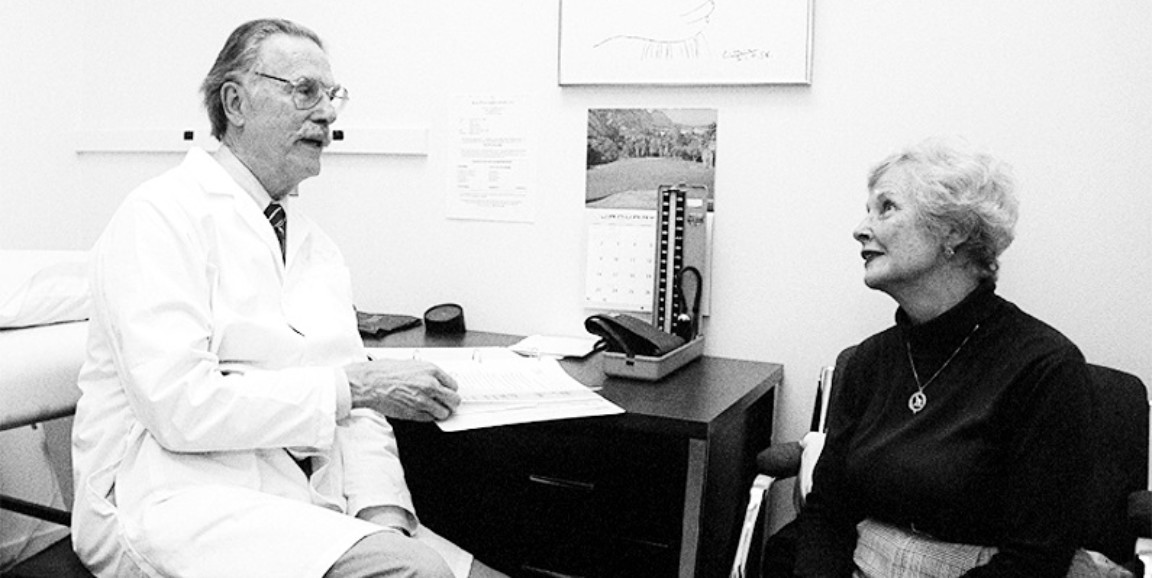Last week, John Farquhar, MD, a globally recognized leader of preventive health research and professor emeritus of medicine and of health research and policy at Stanford, died of natural causes at the age of 91.
I spoke with some of Farquhar's colleague after his passing -- every single one told me he was an absolute visionary, and a gentleman too. Trained as a cardiologist, Farquhar's approach to preventing heart disease broke the mold and shined a light on the community-based aspect of health and disease. He was also featured in an oral history produced by the Stanford Historical Society Oral History Program in 2014.
From our obituary:
'Jack was a true pioneer,' said [David Maron, MD, clinical professor of medicine at Stanford and director of preventive cardiology]. 'He understood the relationship between lifestyle and cardiovascular disease.' He was a new kind of investigator, Maron said, whose goal was to change lifestyle by changing communities.
Farquhar was the founder of the Stanford Prevention Research Center (SPRC), which he launched with the help of Stanford colleagues the late Nathan Maccoby, PhD, professor of communication; the late Peter Wood, PhD, DSc, professor emeritus of medicine, and William Haskell, PhD, professor emeritus of medicine.
To many, he was the instigator of Stanford's initial preventive health research -- alongside the SPRC, Farquhar also founded the well-loved Health Improvement Program for faculty and staff and the Preventive Cardiology Clinic at Stanford.
Back in the 1960s and 70s, cardiovascular health was seen as individualized care -- don't smoke and make sure to exercise. But Farquhar thought bigger, and on the level of entire cities. In 1972 he and colleagues launched a landmark trial that facilitated health-education campaigns and implemented health-improvement tactics, such as programs that offered healthy lunch options at schools, organized community footraces and taught about the dangers of smoking.
"Researchers traditionally randomized individual patients to a new therapy or drug, but here was Jack, randomizing entire cities to receive versus not receive community-based health campaigns," said Christopher Gardner, PhD, professor of medicine, who trained under Farquhar. "What Jack brought was really paradigm-shifting; he brought a multidisciplinary approach with a focus on behavior and environment."
His reach and influence stretched far beyond the Stanford campus, as he was one of the key academic leaders to put community health research on the map for the field of preventive medicine, Marcia Stefanick, PhD, professor of medicine at the center, told me. And today the center he founded thrives at Stanford and even has a global reach.
Photo courtesy of Stanford Medical History Center




